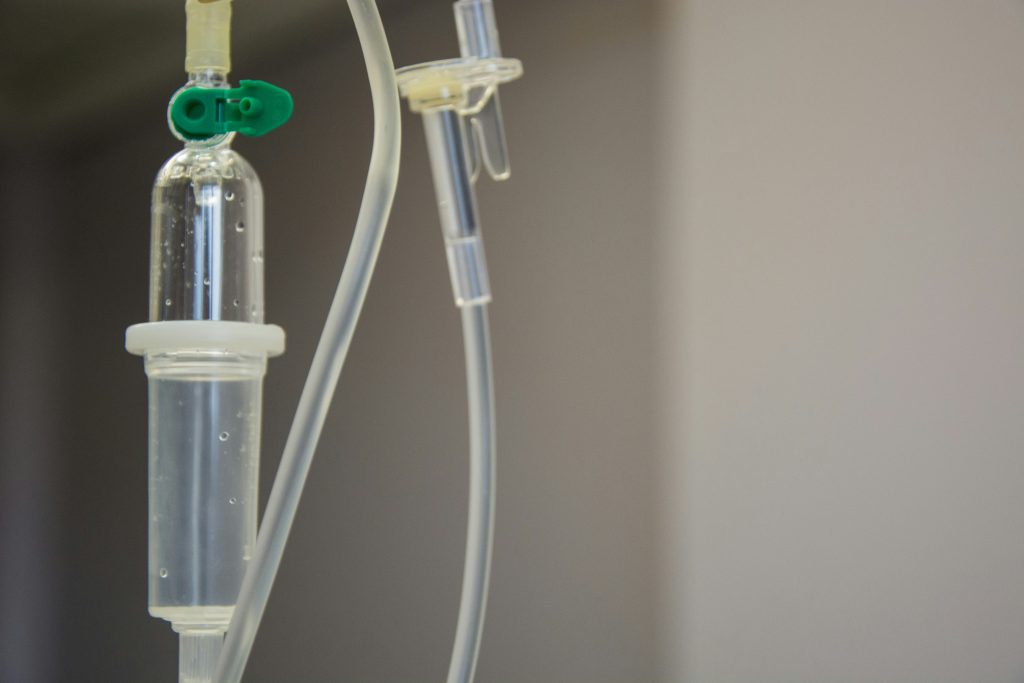Ad Blocker Detected
Our website is made possible by displaying online advertisements to our visitors. Please consider supporting us by disabling your ad blocker.
Imagine a world where the “macho man” stereotype takes a dangerous turn, where excessively high levels of testosterone wreak havoc on men’s physical and mental well-being. In this captivating article, we explore the fascinating and sometimes alarming effects of excessive testosterone on men. From increased aggression and decreased empathy to potential health risks, you’ll discover the surprising consequences of an overload of this powerful hormone. So, buckle up and get ready to unveil the untold side effects of excessive testosterone levels in men.
– Are Excessive Testosterone Levels and High Testosterone Levels the Same Thing?
Excessive testosterone levels and high testosterone levels are often used interchangeably, but they can refer to different situations. While high testosterone levels can have positive effects on muscle mass and libido, excessive levels can lead to negative effects such as aggression, acne, and an increased risk of heart disease.
The Effects of Excessive Testosterone Levels in Men
Having adequate testosterone levels is essential for overall health and well-being in men. Testosterone is a hormone that plays a significant role in various bodily processes, including physical, mental, emotional, and sexual functions. However, excessive testosterone levels can have detrimental effects on men’s health. In this article, we will explore the physical, mental and emotional, and sexual effects of excessive testosterone levels, discuss the risk factors associated with elevated testosterone levels, and explore management options for this condition.

This image is property of images.unsplash.com.
Physical Effects
1. Increased Muscle Mass
One of the notable effects of excessive testosterone levels is increased muscle mass. However, while this may sound appealing to many, it can lead to a range of health issues if not managed properly. Excessive muscle mass can put a strain on the cardiovascular system, increase the risk of injuries, and lead to imbalances in the musculoskeletal system. Therefore, it is important to maintain a healthy balance of muscle mass to promote overall well-being.
2. Hair Loss
Another potential physical effect of excessive testosterone levels is hair loss. Testosterone can contribute to the conversion of hair follicles into thinner, shorter, and more delicate hairs, eventually leading to hair loss. This can be a significant concern for many men, impacting their self-esteem and confidence. It is important to note that not all men will experience hair loss as a result of elevated testosterone levels, as genetic factors and other variables can also play a role.
3. Acne
Excessive testosterone levels can also contribute to the development of acne in men. Testosterone stimulates the production of sebum, an oily substance that can clog pores and lead to the formation of pimples and acne breakouts. This can be particularly troublesome for individuals who are already prone to acne or have a history of skin issues. Proper skincare routines and the use of suitable products can help manage acne associated with elevated testosterone levels.
4. Enlarged Prostate
An enlarged prostate, also known as benign prostatic hyperplasia (BPH), is a common condition that can occur with excessive testosterone levels. Testosterone contributes to the growth and maintenance of the prostate gland, and excessive levels can lead to its enlargement. This can cause urinary symptoms such as increased urgency, frequent urination, difficulty starting and stopping urination, and weak urine flow. Regular check-ups and monitoring are essential to manage the symptoms and prevent complications.
5. Infertility
Excessive testosterone levels can have a significant impact on male fertility. Testosterone plays a crucial role in the production and maturation of sperm cells. Elevated levels can disrupt the delicate balance of hormones involved in the reproductive process, leading to abnormal sperm production and reduced fertility. It is important for individuals with concerns about fertility to consult with a healthcare professional specializing in reproductive medicine to explore options for management and potential treatment.
Mental and Emotional Effects
1. Mood Swings
Excessive testosterone levels can contribute to mood swings in men. Testosterone affects neurotransmitters in the brain, which play a crucial role in regulating mood and emotions. Fluctuations in hormone levels can lead to irritability, anger, and mood swings. These emotional changes can have a significant impact on relationships, work performance, and overall quality of life. Seeking support from loved ones and healthcare professionals can be helpful in managing these emotional fluctuations.
2. Aggression
Studies have shown a potential association between excessive testosterone levels and increased aggression in men. Testosterone is commonly linked to dominant and competitive behaviors, and elevated levels can amplify these traits. It is important to note that not all individuals with high testosterone levels will experience aggression, as other factors such as upbringing, environment, and personal traits also play a role. Maintaining open communication and seeking professional guidance can help manage any concerns related to aggression.
3. Irritability
Excessive testosterone levels can lead to heightened irritability and impatience in men. This can manifest as a reduced tolerance for stress, minor inconveniences, and changes in routine. It is crucial to address these feelings constructively and seek healthy outlets for managing irritability, such as exercise, relaxation techniques, and engaging in activities that promote emotional well-being.
4. Impaired Cognitive Function
Elevated testosterone levels have been associated with impaired cognitive function in some studies. Cognitive abilities such as memory, attention, and spatial reasoning may be affected by excessive testosterone levels. However, it is important to note that more research is needed to fully understand the extent of this effect. Engaging in mentally stimulating activities, consuming a balanced diet, and maintaining a healthy lifestyle can support cognitive function.

This image is property of images.unsplash.com.
Sexual Effects
1. Erectile Dysfunction
High levels of testosterone can paradoxically lead to the development of erectile dysfunction. Testosterone is essential for sexual functioning, including the ability to achieve and maintain an erection. However, excessive testosterone can disrupt the delicate balance of hormones involved in the erectile process, leading to difficulties with achieving or sustaining an erection. Consulting with a healthcare professional specialized in sexual health can help address any concerns related to erectile dysfunction.
2. Decreased Libido
While testosterone is commonly associated with a healthy libido, excessively high levels can actually result in a decreased sex drive. This can be attributed to the disruption in hormonal signaling and the body’s attempt to restore balance. It is essential to communicate openly with a healthcare professional to explore potential underlying causes and develop an appropriate management plan.
3. Testicular Atrophy
Excessive testosterone levels can cause testicular atrophy, which refers to a decrease in the size of the testicles. This can be concerning for many men and may also impact fertility. Testicular atrophy is often reversible with appropriate management, and consulting with a healthcare professional is crucial to understand the underlying causes and explore potential treatment options.
4. Gynecomastia
Gynecomastia, the enlargement of male breast tissue, can be a potential consequence of elevated testosterone levels. Testosterone can convert to estrogen, a female hormone, through a process called aromatization. Excessive levels of testosterone can lead to an imbalance between testosterone and estrogen, resulting in the development of breast tissue in men. Seeking medical advice can help manage gynecomastia and explore options for treatment if necessary.
5. Abnormal Sperm Production
Excessive testosterone levels can disrupt the delicate balance of hormones involved in sperm production, leading to abnormal sperm production. This can impact fertility and the ability to conceive. It is important for individuals with concerns about sperm production to consult with a healthcare professional specializing in reproductive medicine to explore potential options for management and treatment.
Risk Factors
1. Age
As men age, testosterone levels naturally decrease. However, in some cases, testosterone levels can remain elevated or fluctuate excessively. Aging, particularly when combined with other risk factors, can increase the likelihood of experiencing the effects associated with excessive testosterone levels. Regular check-ups and discussions with healthcare professionals can help monitor hormone levels and manage any potential concerns.
2. Lifestyle Factors
Certain lifestyle factors, such as a sedentary lifestyle, poor diet, excessive alcohol consumption, and substance abuse, can contribute to increased testosterone levels. Maintaining a healthy lifestyle that includes regular exercise, a balanced diet, and limited alcohol and drug use can help mitigate these risk factors and support overall well-being.
3. Medical Conditions
Certain medical conditions and treatments can contribute to elevated testosterone levels. For example, polycystic ovary syndrome (PCOS) in women can lead to increased testosterone production, while hormonal treatments and anabolic steroid use can also affect testosterone levels. It is important to address any underlying medical conditions and consult with healthcare professionals to manage potential complications associated with excessive testosterone levels.

This image is property of images.unsplash.com.
Management of Excessive Testosterone Levels
1. Lifestyle Changes
Adopting a healthy lifestyle is often the first line of defense in managing excessive testosterone levels. Regular exercise, a balanced diet, adequate sleep, and stress reduction techniques can contribute to hormone regulation and overall well-being. Engaging in appropriate physical activities, consuming a diet rich in nutrients and antioxidants, and developing healthy coping mechanisms can aid in managing the effects associated with elevated testosterone levels.
2. Medications
In some cases, healthcare professionals may prescribe medications to manage the effects of excessive testosterone levels. These medications may include anti-androgens, which work by blocking the effects of testosterone, or drugs that help regulate hormone balance. It is essential to follow medical advice and discuss any concerns or side effects with healthcare professionals when taking medications.
3. Hormone Replacement Therapy
Hormone replacement therapy (HRT) may be considered in cases where testosterone replacement is necessary. This involves the administration of testosterone in the form of gels, injections, patches, or pellets to help restore balanced hormone levels. HRT should always be pursued under the guidance of a healthcare professional specialized in hormone therapy to ensure safety and effectiveness.
Conclusion
While testosterone is an essential hormone for men’s health, excessive testosterone levels can have significant effects on physical, mental and emotional, and sexual well-being. Understanding the potential consequences, risk factors, and management options associated with elevated testosterone levels is crucial. By maintaining a healthy lifestyle, seeking appropriate medical care, and having open communication with healthcare professionals, individuals can effectively manage the effects and lead a balanced and fulfilling life.



